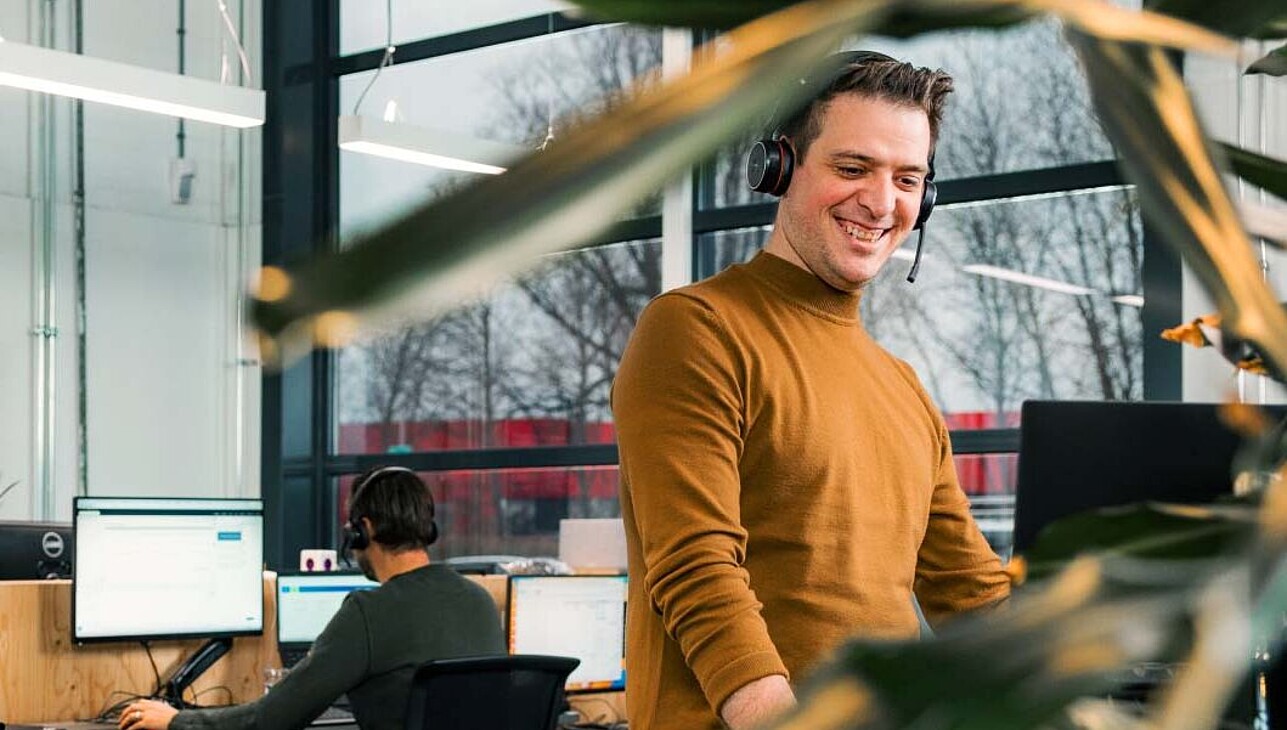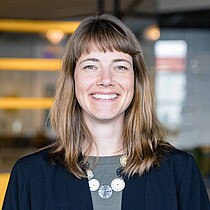

Is self-management the way to the future? Some management theorists and practitioners argue confidently that this is true. Others, equally confidently, state that it is not, and that it can be dangerous to remove layers of management that have proven their worth over a period of decades.
Bex Hewett, associate professor in the Department of Organisation and Personnel Management at RSM, is currently working on a management research project that involves 40 organisations in the Netherlands, in Europe, and around the world. The aim is to identify which of these assertions (if either) might be closer to the theoretical, practical and everyday operational reality.
Other members of the project partnership team – in what is predominantly a
qualitative study – are Diederick Janse and Annemieke Verhoeff, who are both consultants specialising in self-managing organising, and Julian Markus, a PhD student at WU Vienna.
“We can learn a great deal about how to help both sides of this relatively simple equation maximise the opportunities available to them,” states Bex Hewett. “What happens when self-organisation works? And what happens when it doesn't work?”

Department of People and Culture
Voys, Telecommunications equipment supplier in Groningen

She begins this micro-phase of the project by venturing a definition of self-organisation. “It is about giving people the authority to make their own decisions, and help shape the organisation in which they play a key role, based on their own skills and experience rather than fit into a traditional and often almost anonymous management hierarchy.
“Organisations that place emphasis on self-organisation have the potential to enrich people's working lives because they can shape their working environment to a greater degree than in a traditional hierarchical system and so fulfil their own potential to the benefit of themselves, their colleagues and the employer organisation.
“I'm interested in whether organisations are achieving such outcomes and, if so, how they are doing so. Our ongoing study, which includes a series of interviews with a range of staff up to and including chief executive officers, is aimed at identifying which HR practices organisations need to deploy to achieve full potential all round. We are placing people, processes, and practices under the microscope. In essence, it can boil down to a very simple question. What do we need to do to encourage people to stand up, speak out and be counted?”
A case study illustrates how theory can be demonstrated by reference to real, everyday corporate life and operational matters. So, step forward Rosien van Toor, partner and self-organisation coach at Voys, a modestly sized telecoms and IT company.

Headquartered in and operating from Groningen, the Netherlands, with operations in Belgium, South Africa and now Germany, Voys builds and maintains telecoms networks to enable voice communication over the internet. It affords staff an unusual degree of autonomy in a sector where normally people would be constantly monitored and controlled.
Voys has the distinction of being one of the fastest-growing companies in the Netherlands over the past decade, suggesting, dare one say it, that it is doing something right.
Rosien van Toor says that: “Voys has been based on self-organisation from the start, and our experience shows it works well in a small team that does not have a traditional approach to management hierarchy, although it does require ongoing attention and care, as does any form of management.”
Rosien van Toor has been with Voys for eight years and draws clear distinctions between managing people and managing work. She identifies three yardsticks for success. One, is the company achieving commercial success in a dynamic market? Two, does the company work for those human beings who make up the organisation? And three, does the company have a positive impact on the world?
Self-organisation promotes workforce happiness as staff lean into the unaccustomed autonomies they enjoy, she comments. “We are seeing
beautiful things happen,” pointing to the most recent evidence from the company’s expansion into Germany.
“This began using the existing Voys software, compiled in Dutch and English. Perhaps unsurprisingly, it quickly became clear that German users preferred to use our products in their own native language. Translation, even when it involves two closely related languages, can be onerous and time-consuming, but self-organisation paved the way towards a quick and effective solution.
“A colleague who has an involvement in this project and a background in user experience (UX) came upon a software framework for rapid translation of our applications,” she states. “A key requirement is a good flow of information, which within Voys is shared by default and is accessible to everyone. The colleague in question had the autonomy to bring in what he had found, and it worked. Within weeks we were up and running in German.”
This did not happen by chance. The philosophy and practice are embedded in Voys’ corporate culture. If a company has a culture that punishes staff for 'wasting time and experimenting with new ideas', the staff in question will not bring forward potentially positive ideas. “New ideas will quickly stop coming,” she emphasises.
They also need space in their working time to think, suggest and develop. Voys encourages staff to spend 10 per cent of their time in this way.
This raises an important question, especially among those who are sceptical about corporate development. Can such a culture and the qualities it seeks to encourage survive growth?
“I think so, but it is more nuanced than that, especially in how you support growth while maintaining core corporate values,” says Rosien van Toor. “The question is: what, and where, is the tipping point?”

Voys currently employs around 130 people over the four jurisdictions in which it operates. History (to date) shows that in larger organisations, focus has shifted as staff begin to identify with the department in which they work rather than with the organisation itself. Creating a common sense of purpose is essential, and a key is hiring, Rosien van Toor believes.
“We only hire for fit within organisation and culture. Potential new colleagues need to have an entrepreneurial spirit and embrace our values of openness, support, evolving and equality. I don't want them to act like chickens in a battery farm. I want them to make a difference, to feel and know that they can create positive change and make improvements. We give them the freedom to stretch and learn."
But empowerment, she concedes, can be complicated. “Not everyone feels
how their colleague feels,” she adds.
For Bex Hewett, one of the key takeaways is relatively simple: “People have to know the strategic challenge.”
Nine months into the research phase, Bex Hewett’s project has already marked one major milestone, being the sharing of early insights with the participating organisations.
“We have plans to produce a white paper later this year, and then proceed to finalising a research paper,” says Bex Hewett. “We will be delighted to ensure that readers of RSM Discovery are kept well informed as we strive to capture the complexities of individual, collective and corporate experiences.”

Science Communication and Media Officer
Rotterdam School of Management, Erasmus University (RSM) is one of Europe’s top-ranked business schools. RSM provides ground-breaking research and education furthering excellence in all aspects of management and is based in the international port city of Rotterdam – a vital nexus of business, logistics and trade. RSM’s primary focus is on developing business leaders with international careers who can become a force for positive change by carrying their innovative mindset into a sustainable future. Our first-class range of bachelor, master, MBA, PhD and executive programmes encourage them to become to become critical, creative, caring and collaborative thinkers and doers.
